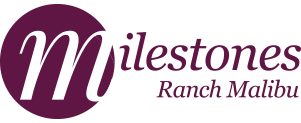LGBTQ+ Friendly Treatment Centers: A Safe Space for Healing and Growth
LGBTQ friendly treatment centers are specialized rehabilitation and behavioral health facilities that provide inclusive, affirming, and culturally competent care for individuals within the lesbian, gay, bisexual, transgender, queer, and other gender-diverse communities. These centers recognize that LGBTQ individuals often face unique challenges related to mental health, addiction, and trauma, often stemming from discrimination, social rejection, or identity-based stigma. By offering tailored support in a safe and nonjudgmental environment, LGBTQ friendly treatment centers play a vital role in helping clients achieve lasting recovery and emotional well-being.
LGBTQ+ Friendly Treatment Centers - Understanding the Need for LGBTQ Affirming Treatment
The LGBTQ community faces disproportionately higher rates of substance abuse, mental health disorders, and suicidal ideation compared to their heterosexual and cisgender peers. Factors such as family rejection, societal marginalization, internalized stigma, and the trauma of “coming out” contribute significantly to these risks. For example, according to the National Survey on Drug Use and Health, LGBTQ adults are more than twice as likely to use illicit drugs and experience mental health issues.
Traditional treatment centers may not always address the intersectionality of sexual orientation, gender identity, and psychological distress. LGBTQ friendly centers are designed to fill that gap by offering programs where individuals feel safe to be themselves without fear of judgment, conversion therapy, or misunderstanding. Staff are trained to understand LGBTQ specific issues such as gender dysphoria, identity-based trauma, and minority stress, which allows for more effective therapeutic engagement.
What Services Do LGBTQ+ Friendly Treatment Centers Offer?
- Mental Health Counseling: Including therapy for depression, anxiety, PTSD, and identity exploration.
- Substance Use Treatment: Detox, inpatient rehab, outpatient care, and sober living options.
- Trauma-Informed Care: Therapists are trained in recognizing and treating trauma related to discrimination, bullying, and abuse.
- Gender-Affirming Therapies: Support for individuals transitioning or exploring gender identity, including access to endocrinologists or trans health services.
- Peer Support Groups: Group therapy and support spaces tailored for LGBTQ members to share and connect.
- Family Therapy: For clients whose families are supportive and open to involvement in the recovery journey.
- Case Management: Assistance with housing, employment, legal aid, and connection to LGBTQ resources.
These services are often delivered in an environment where inclusive language, gender-neutral bathrooms, and respect for pronouns and identities are standard practice.
LGBTQ+ Friendly Treatment Centers - The Importance of Affirming Environments
For LGBTQ individuals, the setting of a treatment center can be just as critical as the therapy itself. Safe and affirming environments reduce barriers to participation and help clients engage more openly in their treatment. This affirmation might include representation of LGBTQ staff, inclusive intake forms, rainbow flags or inclusive signage, and policies that explicitly prohibit discrimination or harassment based on sexual orientation or gender identity.
Such environments also foster community. Many LGBTQ individuals enter treatment after feeling isolated or marginalized. LGBTQ friendly centers often facilitate the development of healthy support networks that are vital for long-term recovery. Clients benefit from peer mentorship, group solidarity, and a shared understanding of struggles unique to their identities.
FAQs – LGBTQ Friendly Treatment Centers
For example, a center might include gender-neutral bathrooms, allow individuals to room according to gender identity, and offer group therapy that specifically discusses LGBTQ issues like coming out or navigating relationships.
For instance, a center may offer separate tracks for LGBTQ+ teens dealing with bullying and identity development, and for older adults who may be managing late-life coming-out experiences or long-term trauma.
A transgender person recovering from substance use might receive therapy that addresses body dysphoria and social stressors unique to trans individuals, while also participating in hormone therapy continuation when clinically appropriate.
For example, a lesbian client recovering from alcohol addiction might join a women's group that also addresses internalized homophobia and relationship trauma, alongside broader addiction treatment.
For example, someone dealing with depression and opioid use may receive psychiatric support, medication management, and therapy that explores how identity stressors contribute to both conditions.
A gay teen in residential treatment might benefit from family sessions that help parents understand their child’s identity, while an adult who experienced rejection may choose not to involve family at all.
For instance, transgender clients are not required to disclose their transition status to peers and are protected from harassment by strict facility rules and trained staff supervision.
A non-binary individual leaving inpatient rehab might choose a sober home where residents use correct pronouns and where LGBTQ related issues are openly discussed during house meetings.
For example, a working adult with Blue Cross Blue Shield insurance might find a center that accepts their plan and helps them file claims for both therapy and medication-assisted treatment.
Calling the center directly to ask about their experience with LGBTQ clients, staff training, and specific services offered is another effective way to ensure it's a good fit. Organizations like OutCare Health and Psychology Today also offer searchable databases of affirming providers.
Summary - LGBTQ+ Friendly Treatment Centers
LGBTQ friendly treatment centers are essential pillars of inclusive care, offering a sanctuary for healing that honors identity, validates experiences, and supports recovery in an affirming setting. By acknowledging the unique stressors and challenges LGBTQ individuals face, these centers provide not just clinical treatment but emotional and psychological safety as well.
From detox to mental health support and long-term recovery planning, these centers are equipped to guide individuals through some of the most vulnerable moments of their lives. Whether someone is battling addiction, processing trauma, or navigating their gender or sexual identity, LGBTQ friendly treatment centers offer the compassionate, comprehensive, and culturally aware care they deserve. In today’s diverse society, affirming treatment is not just preferable—it is necessary.
Sources:
- "LGBTQ+ Residential Treatment Program" – Pride Institute
- "LGBTQ+ Drug & Alcohol Addiction Rehab near Dallas, TX" – Greenhouse Treatment Center
- "LGBTQ+ Addiction Rehab & Recovery Program | Texas" – Starlite Recovery Center






-svg.jpg)







